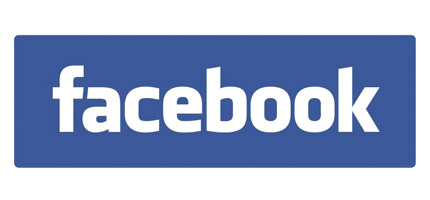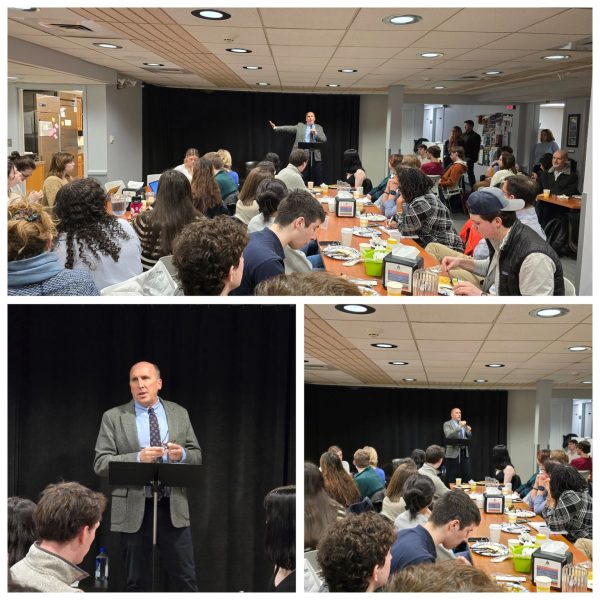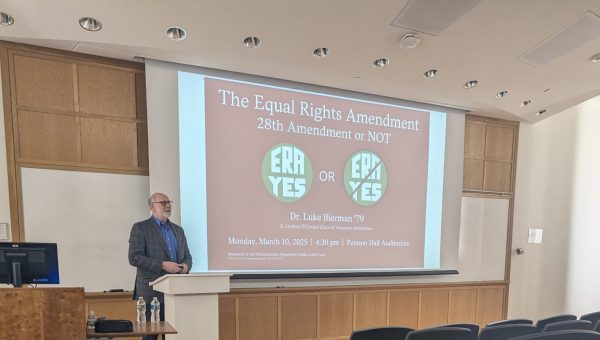Facebook Data Scandal Causes Users to Reflect

Students reflected on their involvement with Facebook and how this event has impacted their usage. Many commented on their knowledge of privacy.
Facebook’s privacy practices have come under intense scrutiny recently after Cambridge Analytica, a political data-mining and consulting firm,
obtained user data inappropriately.
The social network giant, which boasted 2.2 billion active users at the end of 2017, is facing backlash from its immense user-base, with many users left feeling anxious about the security of their personal information and critical of the platform’s failure to police its vendors.
On March 25, Facebook ran an apology letter in the UK’s The Observer, The Sunday Times, Mail on Sunday, Sunday Mirror, Sunday Express and Sunday Telegraph, as well as in several United States publications, including The New York Times, Washington Post and the Wall Street Journal.
In the letter Facebook’s CEO and Founder Mark Zuckerberg promised to do better. The apology is headlined, “We have a responsibility to protect your information. If we can’t, we don’t deserve it.”
Senior Alyssa Fritz reflected on her Facebook usage in light of the scandal.
“I think this whole Cambridge Analytica scandal is alarming. It’s made me feel like Facebook has the capabilities to spy on everything I do on my phone. That’s an uncomfortable realization and I think I’m close to deleting the Facebook app off my phone. I don’t even use Facebook that much anyways – it’s helpful for knowing about local events and receiving birthday reminders but the platform itself has gotten a lot less necessary for me. So I’m really not sure why should I keep it if there’s the risk that my information could be taken advantage of,” Fritz said.
Junior Oliver Green also expressed his concern.
“I think that this issue should serve as an opportunity to call for more transparency as to what data Facebook can access and how it accesses it. It might be time to investigate the power that social media giants have over their individual users,” Green said.
Cambridge Analytica is a private firm originally founded by Stephen Bannon, a far right-wing political figure and Trump’s former chief strategist, and Robert Mercer, a wealthy businessman.
The project began in 2014 when the firm partnered with a Cambridge University Psychology Professor Aleksandr Kogan, who had created a quiz app that was purported as a psychological research tool. The app paid Facebook users a small amount as compensation in return for answering questions and downloading the app. Users could then connect it to their accounts, which gave access to their profile and friends. The app ended up reaching over 50 million Facebook users.
However, the app became more than a research tool for just academic purposes. The idea behind collaborating with Kogan was that with enough personal data, Cambridge Analytica could engage in voter profiling. Private information obtained under the guise of a Facebook quiz app allowed for the opportunity to micro-target voters in specific areas. Cambridge Analytica was able to create emotionally tailored online advertisements for both Britain’s vote to leave the European Union and President Donald Trump’s 2016 presidential campaign.
This transfer of data to a third party violated Facebook’s internal policies and in 2015, Facebook discovered that this was occurring. The social network then removed the app and demanded that the data be destroyed. However it has been discovered that the data was never destroyed and likely continued to be exploited for political purposes.
Cambridge Analytica is reportedly under review by the UK Information Commissioner’s Office, and the company has volunteered to undergo an autonomous third-party audit.
In a recent report by The New York Times, Senior Analyst at Pivotal Research Group Brian Weiser was singled out because he had downgraded Facebook stock to “sell” last summer even though it was outperforming in revenue and user growth.
“I felt investors were looking at Facebook in much too positive a light. They just ignored all the bad things, and there were a lot of them,” Weiser told The New York Times.
Weiser called the Cambridge Analytica breach “the most significant thing that had happened to Facebook since it became a public company.” He went on to highlight that, “Most people hadn’t given much thought to how their data is used… But this really exposed the potential abuse.”
The social media network has reportedly lost $100 billion in market capitalization since hitting its peak on February 2.
Senior Dana Monz explained her involvement with Facebook.
“I think originally Facebook was phased in for our generation, but I really don’t use it that much anymore. It’s helpful for keeping up with birthdays and local gatherings but other than that I wouldn’t say I’m an avid Facebook user. I actually never downloaded the mobile app, and the separate Facebook messenger app bothered me; I didn’t think I needed another texting app,” Monz said.
Senior Will Jundanian also reflected on how Facebook functions in his life.
“I’m thoroughly impressed by Facebook’s ability to monitor my preferences and remind me of the quotidian tasks that commonly escape me. Whether it’s an advertisement for a new squash racquet I’ve been meaning to buy or a local cleaning service I’ve been meaning to call, I’ll see the advertisement banner and I’ll be reminded of what I need to do that day,” Jundanian said.
This breach of information has many social media users reflecting on their digital footprint, what they opt to share and their knowledge of Facebook’s privacy features. Facebook is an interconnected web of information, and it’s easy to forget the risks that go along with participating in an ecosystem of social networking and sharing.
Contact Maddie Veronis at mveronis@colgate.edu.





